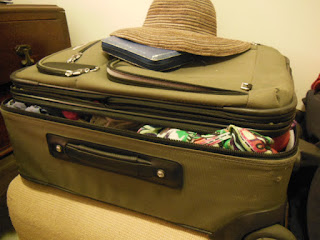Why did the chicken cross the road is a classic joke, but we recently found out that it's very much an English-speaking-culture joke. We had dinner last week with two colleagues, one Australian and one German. After dinner we served our Australian guest tea in a mug that had a version of the chicken-road joke. It was a "Far Side" comic. She loved it, but confusion took over as we tried to explain to our German guest the meaning of the joke. She's fluent in English, but didn't understand why that version (or the original) made us smile. (The joke turns out to have quite a history, check it out here.) Humour is so much more about culture than it is about language.
We continued talking about humour and I brought up the example of Mr Bean. I'd thought he was pretty clever with his non-verbal humour that seems to be appreciated across cultures, but our friend tells us that in Germany, Mr Bean is seen as "British humour"!
Most of our colleagues and friends are not Australia, many are not native English speakers either. Sometimes people in Australia notice that our English isn't quite as Australian as it used to be and it's because we've spent nearly 24 years living and working outside of Australia in multicultural environments. It means some of our word choices are different, for example, I tend to say "bathroom" more often than "toilet" these days, simply because it's less likely to cause confusion or offence. I used "rush hour" just this morning and found out that "peak hour" is more often used in Australia. Probably "gas station" comes out more often than "petrol station". I tend not to use colloquial words like "arvo" or "footy" and geographically-tied words like "ute" (pickup truck) and "regional" (yes, this word is used differently in Australia to other parts of the world). Our accent has become more "international" and we probably don't lengthen our vowels as much as many Aussies do.
My work as an editor and writer means that words are on my mind a lot. Almost all I write is for an international audience. Both my jobs are with international teams who speak different kinds of English, or have English as their second, or third language. Linguistic challenges are often on the table for discussion, hence my apparently well-known "Wednesday Words" Facebook statuses. The other day I tried to set up an online meeting with a British colleague and American colleague. Communication went a little bit awry with what I suspect was a hastily written email by our British colleague that confused my American colleague. Each of us had a slightly different understanding of what had been written. No big deal, as far as I know. But it could easily have been.
Working in an environment like this can make you think more carefully about the words you use and how you say them. A good communicator thinks more about their audience than they might have in their own country. For example, if I'm talking to an American, I would tend to say "ketchup" not "tomato sauce" or "candy" not "lolly". If I'm talking to a friend who speaks English as their third language I might choose simpler words and sentences than I would when speaking to my Australian or British colleagues, not because my friend is unintelligent, but as a way of respecting them by speaking in a way they understand.
It might be a surprise to you, but the differences between our English go way beyond spelling, word usage is a big difference, and not simple biscuit vs cookie vs scone. Will I stand at the back of the room, or in back? Is it good or bad news if I hear "you lucked out"? Is the chicken walking in the road or on the road? But I think it's time I hopped on my bike and rode on the road to the grocery store.

































